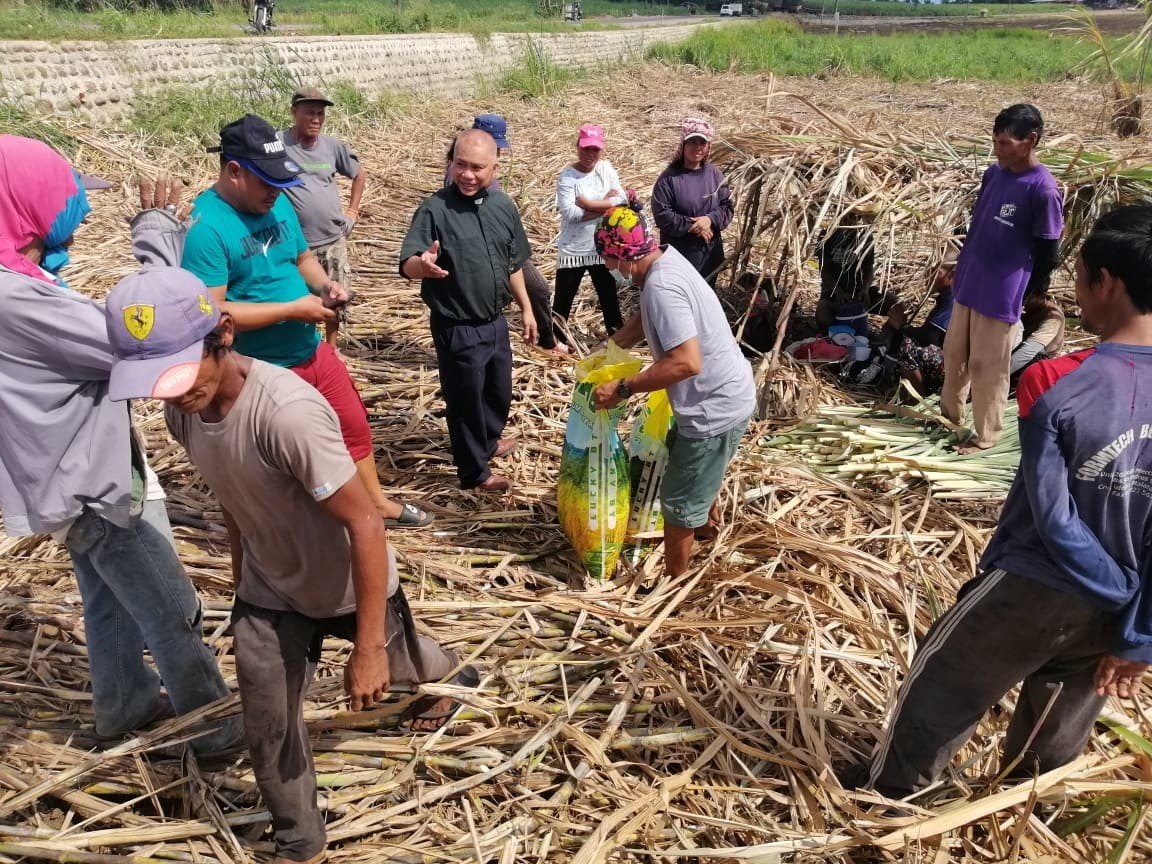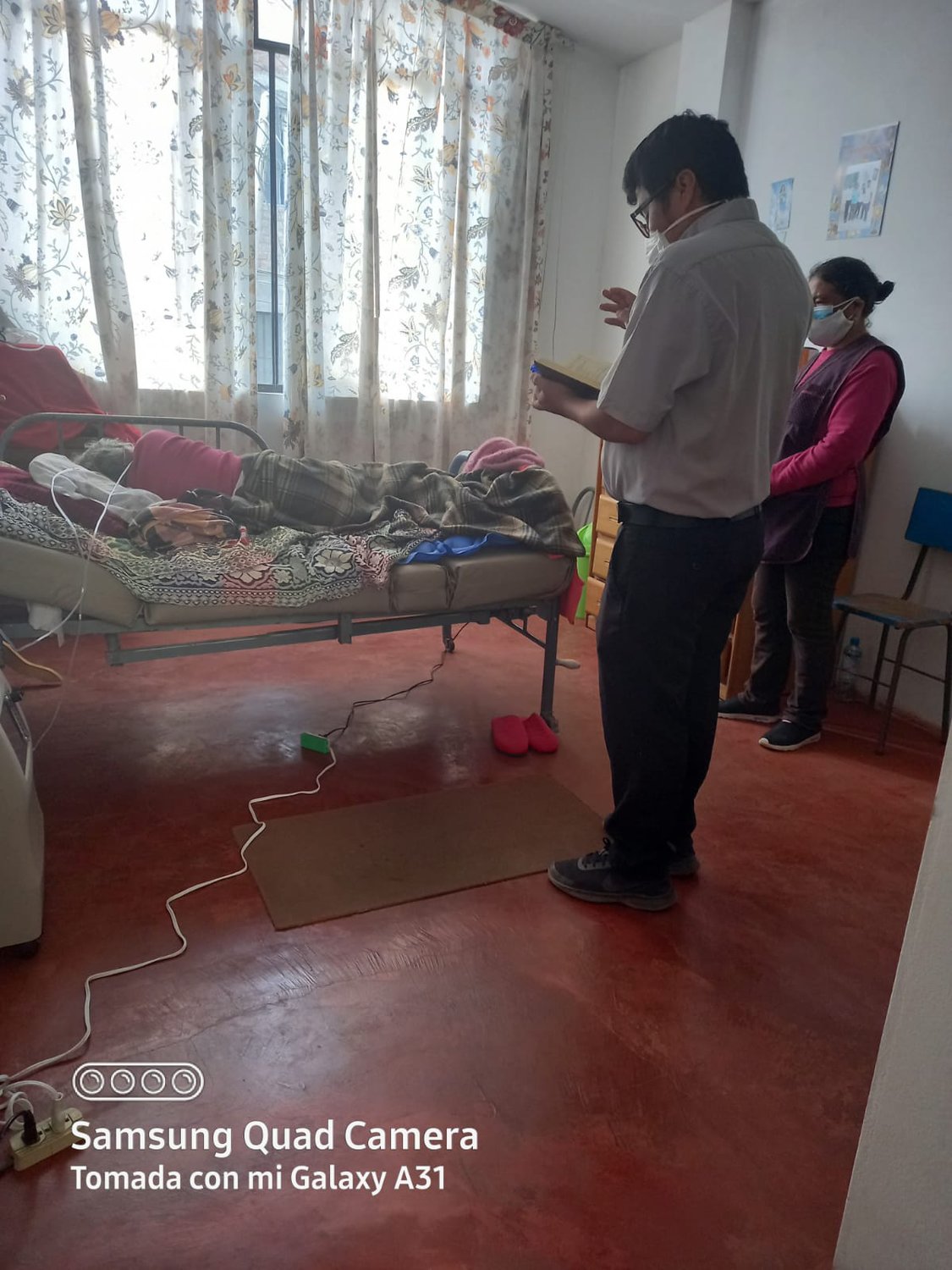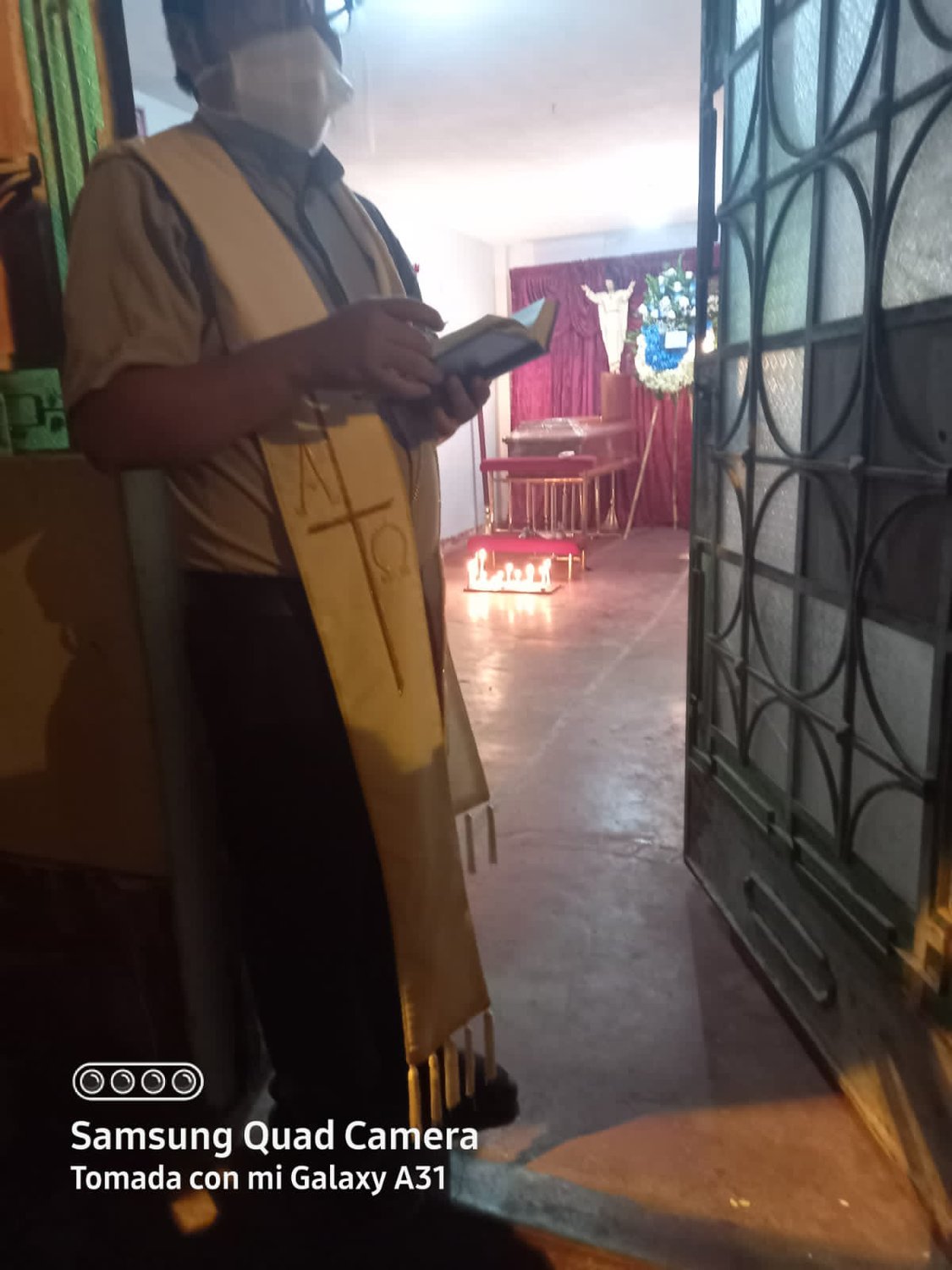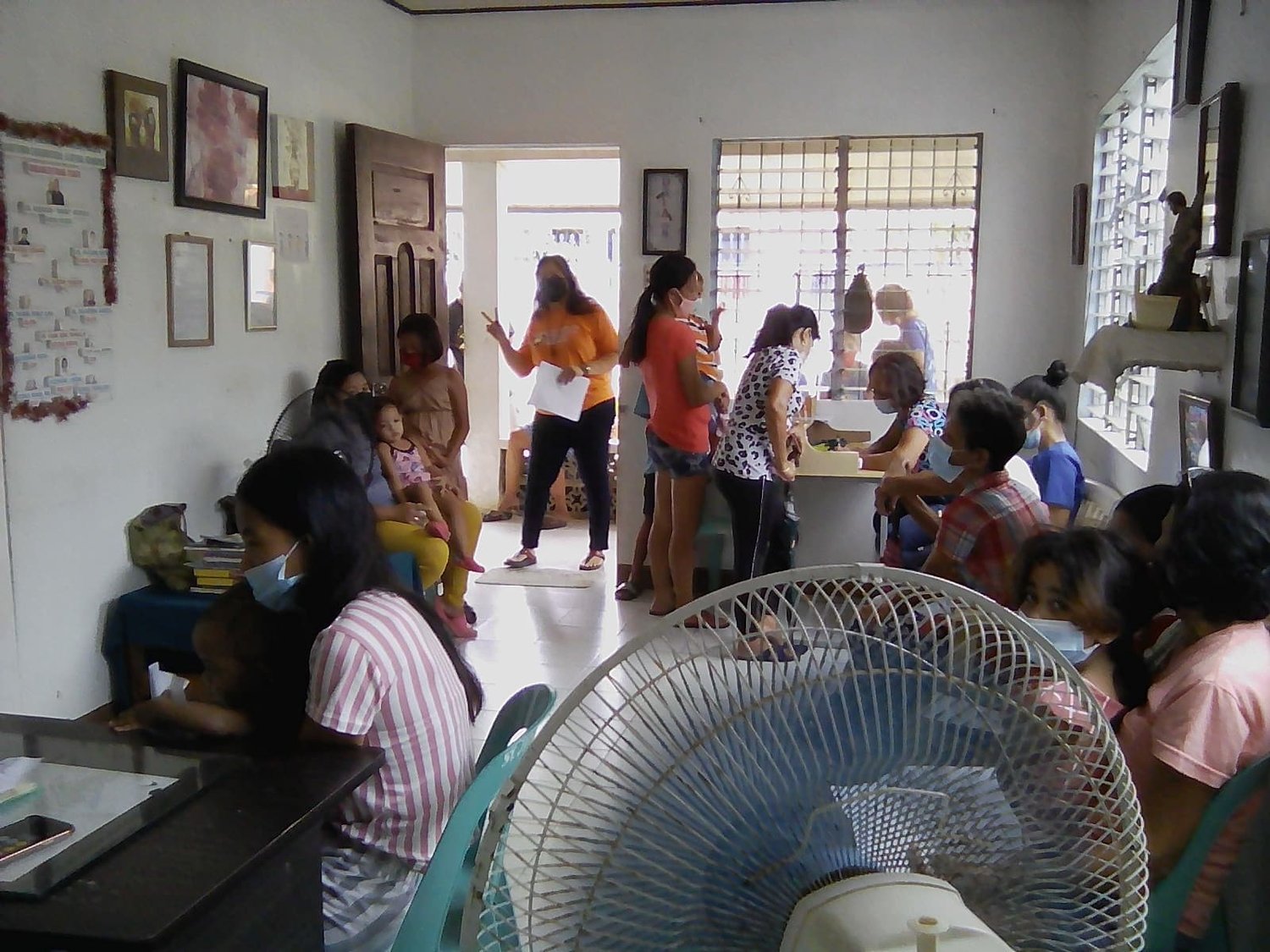Contributions help solidify mission partnerships around the world
Diocesan Mission Collection to be taken up July 17-18

SCROLL THE ARROWS to see more photos.
These are the days of the year the sugarcane plantation workers in the Negros Occidental region of the Philippines call “tiempo muerto.”
That is “dead time,” when there’s nothing to harvest and no money to buy food.
“It is at this time of the year that they and their families have no choice but to weather the hunger brought about by this off-season until they can farm again,” said Father Donardo “Fr. Dandi” Bermejo.
He is founder and director of the Works of Charity Center and St. Joseph the Worker Charity Clinic for the indigent sugarcane plantation workers of that region.
“It is at this season that they need lots of help and assistance from people of goodwill,” he stated.
Much of that help and assistance comes from the people who contribute to the mission outreach of the Jefferson City diocese.
Parishes throughout the diocese will take up the annual Diocesan Mission Collection the weekend of July 17-18.
Contributions help the lifesaving work of the diocese’s mission partners around the globe.
Countries such as India, Nigeria, Uganda and Ghana currently send missionary priests to minister in this diocese.
In turn, the Church in central and northeastern Missouri helps these missionary priests’ home dioceses by providing resources for projects such as building a chapel in an isolated village in India or digging a well to provide access to fresh water in several African locales.
Contributions also support ongoing mission projects in Latin America and the Philippines.
“We are nourishing families not only with the basic necessities they need,” Bishop W. Shawn McKnight stated in a letter to the people of this diocese, “but also by preaching the Gospel and empowering people to work together to change the world in which they live.”
Ministering to the vulnerable
Money from the Mission Collection helps the work of Father Cesar Anicama, a priest of the Jefferson City diocese who’s ministering among some of Peru’s poorest people in the midst of a global pandemic.
Serving as a Missionary of St. James the Apostle in his homeland of Peru, Fr. Anicama ministers at Nuestra Señora de la Paz (Our Lady of Peace) Parish in Villa El Salvador, about 20 miles south of Lima, the nation’s capital.
This coastal city is home to about 4 million people, many of whom resettled there after fleeing the poverty of the Andes Mountains almost a half-century ago.
“I have been able to distribute food packets and hygiene kits,” Fr. Anicama recently reported. “I’ve reached those affected by COVID-19, especially people living in poverty, those in isolation, and those who are unemployed.”
Each food basket — containing rice, sugar, milk, beans and tuna, among other items people may need — provides enough food for a family of three for a week.
He has also been providing spiritual support to families who are dealing with stress or the death of a family member.
He offers Mass online, leads Eucharistic Adoration and the Stations of the Cross, blesses homes, distributes rosaries, hears confessions, anoints the dying and comforts the grieving.
The diocesan Mission Office sent money from the 2020 collection and various other donations to provide assistance to children, teens, elderly, homeless, handicapped, disabled and low-income people in Villa El Salvador and other villages.
The pandemic has officially killed over 49,000 people across Peru and shattered the Peruvian economy, which relies heavily on tourism, leaving millions unemployed.
“In each Mass I celebrate, I pray for doctors, nurses and health workers because many of them have died around the world,” Fr. Anicama stated.
“I pray for those who suffer the loss of a loved one, or who suffer from the absence of work and all those who are suffering due to COVID,” he added. “I ask God to give me strength to continue working for His Church in this time of global pandemic.”
“A big blessing”
Sugarcane plantation workers in the Philippines suffer from generations of startling poverty and are among the worst paid and least respected in their country.
Compounding their misery this year were the COVID-19 pandemic, flooding in Negros Occidental this January and toxic pollution from a nearby chemical distillery.
COVID vaccines have been slow to arrive in Fr. Dandi’s region of the Philippines, so he and his staff have had to work cautiously.
Even so, “every time I visit sugarcane plantation workers in their communities or in the sugarcane plantation, I always feel the presence of Christ in each one of them and God’s presence in our midst,” he stated.
“Yes, it is always a happy and grace-filled moment for each one of us when we come together,” he said.
Fr. Dandi and employees of the Works of Mercy Center have made several surprise visits to surrounding villages, distributing bags of rice.
On one such visit in May, they encountered workers earning about $2 a day by pulling weeds.
“It was a big blessing for them and for their family when we distributed rice packs to them,” said Fr. Dandi.
He noted that rice is a staple food in the Philippines and is not cheap, so to receive it as a gift is considered “a big blessing from God above.”
In each of these visits, “we spent some moments praying tighter, thanking God for the many blessings, big or small, that we received, and the grace to be a source of blessing, too, to everyone we meet,” he said.
The St. Joseph the Worker Charity Clinic in Barangay Purisma has been providing essential healthcare for nearly six years.
“It has been a huge blessing in terms of giving healthcare without charge for the community and the surrounding communities in the town of Manapla,” Fr. Dandi noted.
The clinic had to close for 16 days in May when an employee tested positive for COVID.
In the interim, “we took time to make some renovations and especially to clean and disinfect the building and the entire place,” said Fr. Dandi.
Hope for justice
Fr. Dandi has also been working with the people to convince the government to shut down the VMC Distillery, which pollutes their air and water with foul-smelling toxic waste.
“Because of the pollution caused by this distillery plant, life has become very, very difficult for so many poor people,” he stated. “They get sick, and some die, little by little.”
Furthermore, the land on which the distillery stands does not even belong to the company that’s using it. Under the Government Comprehensive Land Reform Program, the land actually belongs to the poor farmers of the region.
“The land which VMC stole from the people has to be given back to the poor farmers who are the rightful owners,” Fr. Dandi insisted.
“This land is going to be a big help to the landless poor sugarcane farmers and their families, as they can use it for cultivating crops and farming purposes for their food supply and livelihood, and thus help them break the cycle of poverty which they and their forebears have suffered for decades and generations,” he said.
“I really believe that through God’s help, we will win this hard battle in the end,” he stated.
To make a contribution to The Missions of the Jefferson City diocese, visit https://diojeffcity.org/missions/
Comments
Other items that may interest you
Services
The Catholic
Missourian
2207 W. Main St.
Jefferson City MO 65109-0914
(573) 635-9127
editor@diojeffcity.org









